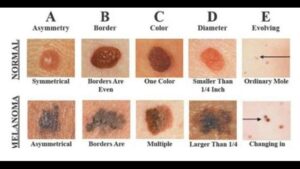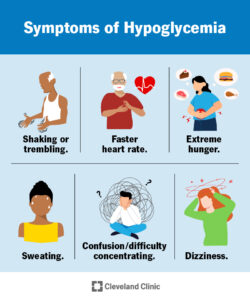MCHC measures the average concentration of hemoglobin in a given volume of red blood cells. It is an important indicator of anemia and can be either high or low.
In cases of low MCHC, it may indicate iron-deficiency anemia or an underlying condition like celiac disease or cancer. On the other hand, high MCHC levels can be a result of spherocytosis or abnormal clumping of red blood cells. Both high and low MCHC values are indicative of different types of anemia, and further medical investigation is necessary to determine the underlying cause.
An MCHC blood test is part of a complete blood count (CBC) and can help identify potential health issues.
Table of Contents
What Is Mchc?
MCHC stands for Mean Corpuscular Hemoglobin Concentration. It is a measure of the average concentration of hemoglobin in a given volume of red blood cells. Hemoglobin is an iron-rich protein that carries oxygen to tissues in the body. Low MCHC levels indicate that the red blood cells do not have enough hemoglobin, which may be a sign of anemia. High MCHC levels, on the other hand, can indicate conditions such as spherocytosis or RBC agglutination. Both high and low MCHC values are indications of different types of anemia and may be a result of other underlying health problems.
In conclusion, MCHC is a measure of the hemoglobin concentration in red blood cells. It is an important parameter that can help diagnose and monitor various conditions, including anemia. Changes in MCHC levels may indicate the need for further investigation and treatment.

Credit: www.medicalnewstoday.com
Low Mchc Levels
Low MCHC levels in a blood test may indicate iron-deficiency anemia or an underlying condition such as celiac disease or cancer. Treatment may involve dietary measures and supplements to address the anemia.
|
Causes of low MCHC levels:
Low MCHC levels in the blood may be caused by various factors, including:
|
|
Symptoms and effects of low MCHC:
Low MCHC levels can lead to symptoms such as fatigue, weakness, pale skin, and shortness of breath. These symptoms occur due to a decrease in the amount of hemoglobin in the red blood cells, which is responsible for carrying oxygen throughout the body. If left untreated, low MCHC levels can have a negative impact on overall well-being and quality of life. |
|
Treatment options for low MCHC levels:
The treatment for low MCHC levels depends on the underlying cause. In cases of iron-deficiency anemia, dietary measures such as increasing iron-rich foods and taking iron supplements may be recommended. Treating underlying conditions such as celiac disease or cancer can also help improve MCHC levels. It is essential to consult with a healthcare professional to determine the appropriate treatment plan and address any concerns or questions. |
High Mchc Levels
High MCHC levels in blood work indicate a higher than normal concentration of hemoglobin in red blood cells. This can be caused by conditions such as spherocytosis or RBC agglutination. It is important to further investigate the underlying cause of high MCHC levels.
Causes Of High Mchc Levels:
High MCHC levels, also known as hyperchromic anemia, can be caused by various factors. One possible cause is spherocytosis, a rare hereditary condition where the body produces abnormally shaped red blood cells (RBCs). Another cause is RBC agglutination, which happens when RBCs clump together abnormally. It is important to note that high MCHC levels can also be an indication of an underlying health issue.
Symptoms And Effects Of High Mchc:
High MCHC levels may or may not present with specific symptoms. However, it is often associated with different types of anemia. While high MCHC levels on their own may not be a problem, they can signal underlying health problems that require further evaluation and treatment.
Treatment Options For High Mchc Levels:
The treatment for high MCHC levels depends on the underlying cause. It is important to consult with a healthcare professional who can perform a thorough evaluation and recommend appropriate treatment options. The treatment plan may involve addressing the underlying condition, such as spherocytosis or RBC agglutination, as well as managing any associated symptoms or complications.
Frequently Asked Questions Of Blood Work What Is Mchc
Should I Be Worried If My Mchc Is Low?
A low MCHC blood test result may indicate iron-deficiency anemia or an underlying condition. Dietary measures and supplements can help treat anemia. Low MCHC may mean red blood cells don’t have enough hemoglobin, which can signal anemia. On the other hand, high MCHC values may suggest different types of anemia.
Both high and low MCHC levels often result from other health problems. MCHC measures the hemoglobin concentration in red blood cells.
What Does It Mean If My Mchc Is Low?
A low MCHC may indicate iron-deficiency anemia or an underlying condition like celiac disease or cancer. It means that red blood cells don’t have enough hemoglobin, which is responsible for carrying oxygen. Anemia can be treated with dietary measures and supplements.
What Does It Mean If Your Mchc Is High?
A high MCHC means that the concentration of hemoglobin in your red blood cells is higher than normal. This can be caused by conditions such as spherocytosis or RBC agglutination. It may indicate a type of anemia called hyperchromic anemia.
Further testing is needed to determine the underlying cause.
Should I Worry About High Mchc?
High MCHC levels can indicate different types of anemia. While it may not be a problem on its own, it could be a result of underlying health issues.
Conclusion
A low MCHC result in a blood test may indicate iron-deficiency anemia or an underlying condition such as celiac disease or cancer. On the other hand, a high MCHC level can be caused by conditions like hyperchromic anemia. While these results may not necessarily be problematic on their own, they often indicate other health issues.
It is important to consult with a healthcare professional to understand the implications of MCHC levels and determine the necessary next steps for treatment and management.








